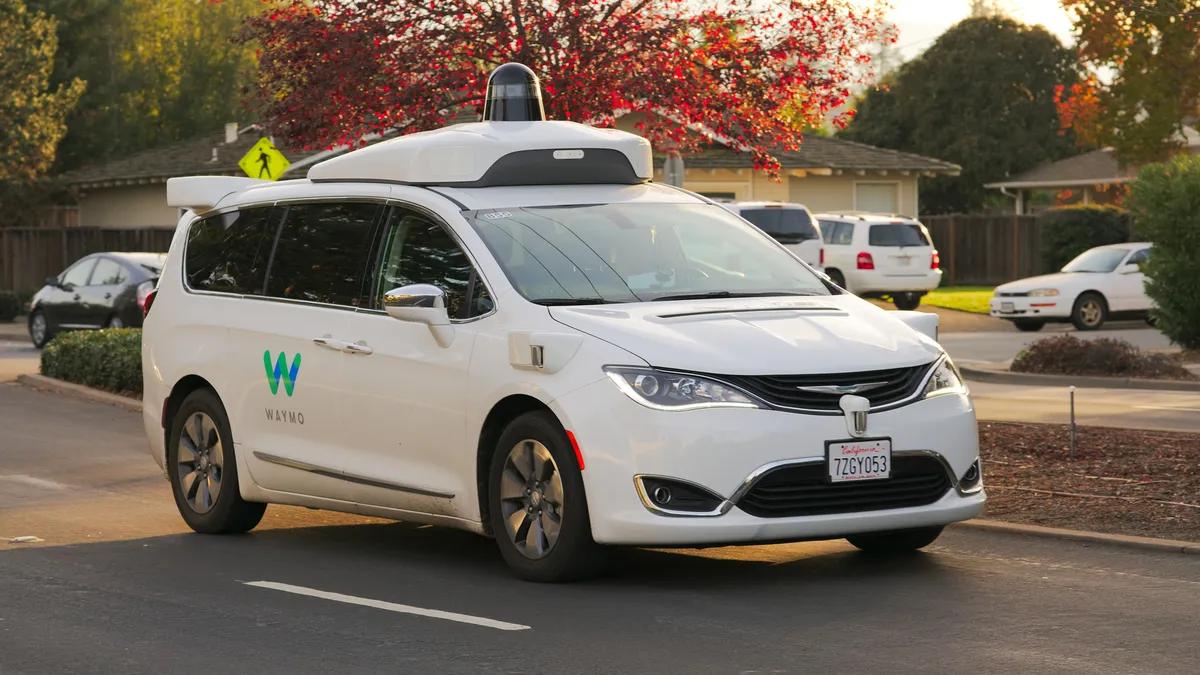Dive Brief:
- Autonomous vehicles (AVs) notched more than 2 million miles on California roads in 2018, according to a batch of reports released by the state. The reports are required of the companies permitted to test AVs in the state and tally the number of miles driven and disengagements, meaning when human safety drivers had to take control.
- Among the 48 companies filing reports for the period ending on Nov. 30, Waymo tallied the most miles driven with 1.2 million (more than triple the 352,000 miles it registered the previous year). General Motors' (GM) Cruise was second with 447,621 miles.
- Waymo — which also holds the state’s first permit to test AVs without a safety driver on board — lowered its disengagement rate significantly to 0.09 per 1,000 self-driven miles in 2018, half what it was in 2017. In a blog post, the company said it is an indication the cars are “getting better at recognizing and handling a wide variety of driving situations,” include unusual cases that a human driver may never experience on the road.
Dive Insight:
The annual disengagement reports give the best indication of the volume — and efficacy — of AV testing going on in California. Currently, 62 companies hold permits to test cars on urban roads (only Waymo has permission to run them without a driver), although not all of them used the privilege. Companies including Tesla, Lyft and Ford all said that they had not driven any AV miles during the previous reporting period.
Apple notched the third most mileage with 79,745 miles, but with 87 disengagements per 1,000 miles, it lags far behind competitors. GM’s Cruise, which aims to launch an autonomous ride-sharing fleet as early as this year, reported 86 disengagements, or 0.19 per 1,000 miles.
Waymo’s massive driving stats show how aggressively the Alphabet-company is working to get its planned autonomous taxi service off the ground (it has already launched on a small scale in Phoenix). According to the company, the cars have driven more than 10 million miles on roads around the world, a volume of testing that it says has led to its relatively low disengagements.
For major testers, disengagement rates went down, but there’s some question about how reliable the reports are. The Verge notes the state’s definition of a disengagement — a failure of autonomous technology or a situation where a driver must take control for safety — leaves plenty of wiggle room. Navigant Research analyst Sam Abuelsamid told the website the disengagement stats are “utterly meaningless,” especially because they aggregate miles driven in vastly different conditions and cities. Notably, Tesla has even reported its own safety statistics without tallying disengagements, making it difficult to compare to other companies.











